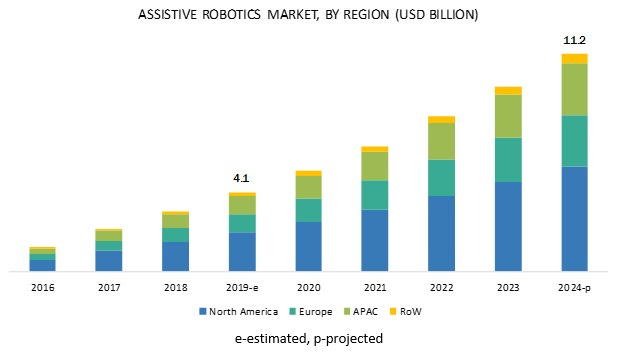Can Robots Cure Elderly Loneliness?
800 Elderly New Yorkers Are About to Get A New Robot Friend. Do You Want One, Too?
Source: Intuition Robotics
The COVID-19 lockdown taught us a lot about the hazards of loneliness and social isolation: depression, poor sleep quality, impaired cognitive function, and weak cardiovascular function are just a few. Indeed, the Center for Disease Control found that loneliness has the same negative health impact as smoking 15 cigarettes a day. Even now, as many of us return to semi-normal schedules, there is a population likely to remain adversely affected by social isolation: the elderly. Can robots help? The State of New York thinks so.
The New York State Office for the Aging (NYSOFA) plans to hand out 800 robots to elderly New Yorkers who it thinks would benefit from a mechanical companion. The robot is named ElliQ and is made by the Israel-based firm Intuition Robotics. Although it can't help with physical tasks-it sits on a tabletop much like an Alexa--ElliQ actively engages elderly users in small talk and helps perform helpful tasks, like providing exercise prompts and medication reminders.
As tablet-top robots go, ElliQ looks pretty friendly. The lamp-like face looks like it is straight out of a Pixar movie, and it swivels to face you when you are speaking. A touchscreen tablet can show pictures and video. ElliQ has been in beta for years but hit the consumer this March for $250, plus a $30 to $40 per month subscription fee.
Although it shares some functionality of an Alexa or Google Home, ElliQ doesn't just wait for a voice prompt. It prompts you. Exercise, take your meds, stay hydrated, and even simple social prompts asking if you want to talk. Indeed, the ELLiQ obscures the line between voice assistant and caregiver: According to a recent article in The Guardian:
ElliQ is blurring the line between being a companion and a carer. Some users have consented to a new feature that notifies their doctor if they tell ElliQ they don’t feel well. Soon, also with the user’s consent, the system will be able to tell a designated family member how a user is doing – for example if they are OK or could use a phone call – based on what they tell ElliQ.
The ElliQ was designed to serve the world’s burgeoning elderly population. More than 14 million Americans over the age of 65 currently live alone today, and the number is growing. This is fueling a boom in the assistive robotics market.
Source: MarketsandMarkets.com
“We’ve long believed that connecting older adults with local communities via ElliQ will add an important element in providing holistic support to older adults aging in place,” said Intuition Robotics co-founder and CEO Dor Skuler. “This partnership with NYSOFA helps us further that mission through an innovative initiative that we are incredibly proud to be part of.”
So, do robots like ELLiQ actually help? Unfortunately, the data is inconclusive. The most comprehensive meta-study of the field summarized its finding like this:
Social robots appeared to have positive impacts on agitation, anxiety, and quality of life for older adults but no statistical significance was found in the meta-analysis. However, results from a narrative review indicated that social robot interactions could improve engagement, interaction, and stress indicators, as well as reduce loneliness and the use of medications for older adults.
Sounds like a definite maybe.
Either way, New York State is moving forward. And you can expect similar features to be built into more mainstream voice assistants going forward.





